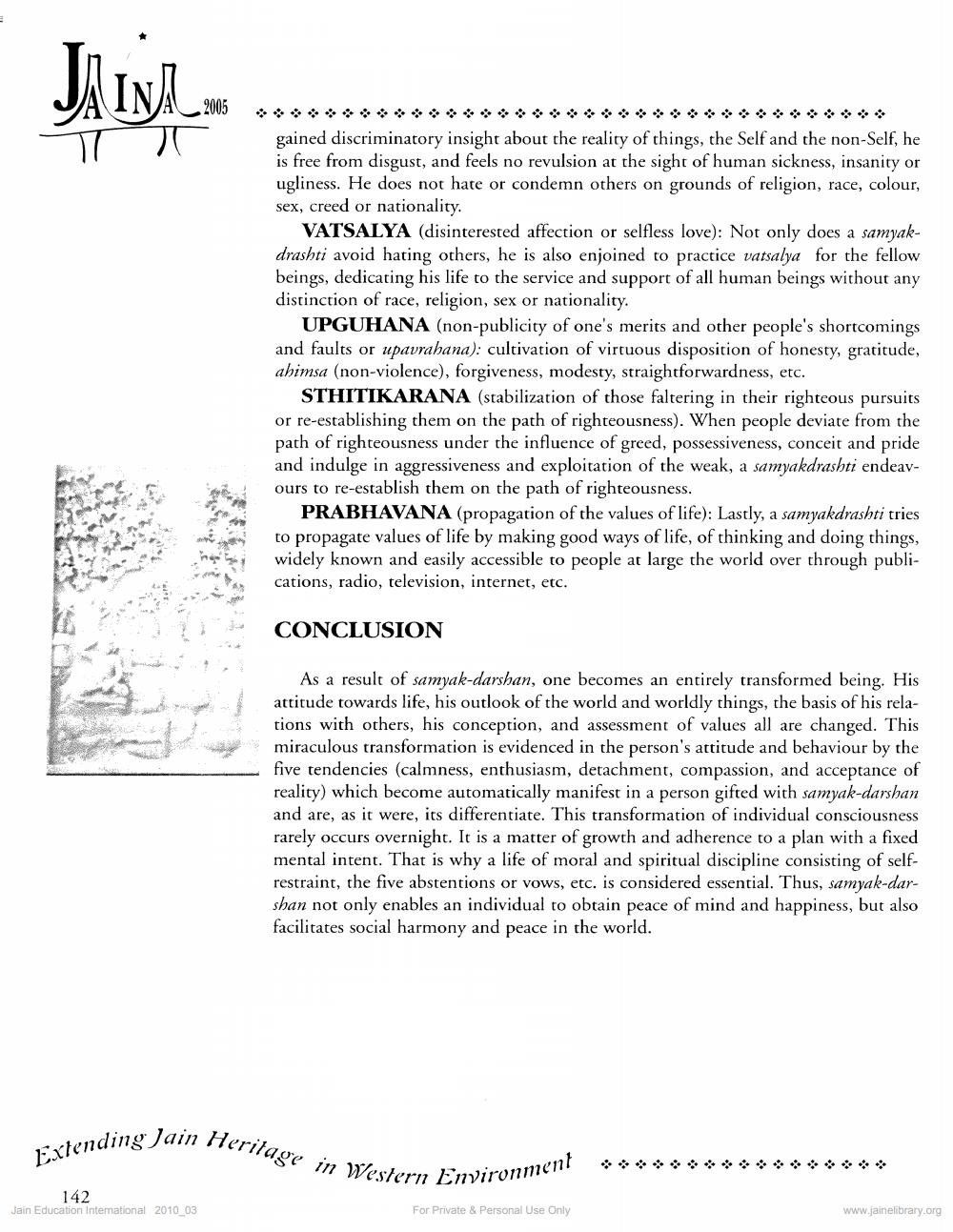________________
JA TAL
NA 2005
7
gained discriminatory insight about the reality of things, the Self and the non-Self, he is free from disgust, and feels no revulsion at the sight of human sickness, insanity or ugliness. He does not hate or condemn others on grounds of religion, race, colour, sex, creed or nationality.
VATSALYA (disinterested affection or selfless love): Not only does a samyakdrashti avoid hating others, he is also enjoined to practice vatsalya for the fellow beings, dedicating his life to the service and support of all human beings without any distinction of race, religion, sex or nationality.
UPGUHANA (non-publicity of one's merits and other people's shortcomings and faults or upavrahana): cultivation of virtuous disposition of honesty, gratitude, ahimsa (non-violence), forgiveness, modesty, straightforwardness, etc.
STHITIKARANA (stabilization of those faltering in their righteous pursuits or re-establishing them on the path of righteousness). When people deviate from the path of righteousness under the influence of greed, possessiveness, conceit and pride and indulge in aggressiveness and exploitation of the weak, a samyakdrashti endeavours to re-establish them on the path of righteousness.
PRABHAVANA (propagation of the values of life): Lastly, a samyakdrashti tries to propagate values of life by making good ways of life, of thinking and doing things, widely known and easily accessible to people at large the world over through publications, radio, television, internet, etc.
CONCLUSION
As a result of samyak-darshan, one becomes an entirely transformed being. His attitude towards life, his outlook of the world and worldly things, the basis of his relations with others, his conception, and assessment of values all are changed. This miraculous transformation is evidenced in the person's attitude and behaviour by the five tendencies (calmness, enthusiasm, detachment, compassion, and acceptance of reality) which become automatically manifest in a person gifted with samyak-darshan and are, as it were, its differentiate. This transformation of individual consciousness rarely occurs overnight. It is a matter of growth and adherence to a plan with a fixed mental intent. That is why a life of moral and spiritual discipline consisting of selfrestraint, the five abstentions or vows, etc. is considered essential. Thus, samyak-darshan not only enables an individual to obtain peace of mind and happiness, but also facilitates social harmony and peace in the world.
Extending Jain Herit
in Heritage in West
Western Emironnie
142 Jain Education International 2010_03
For Private & Personal Use Only
www.jainelibrary.org




